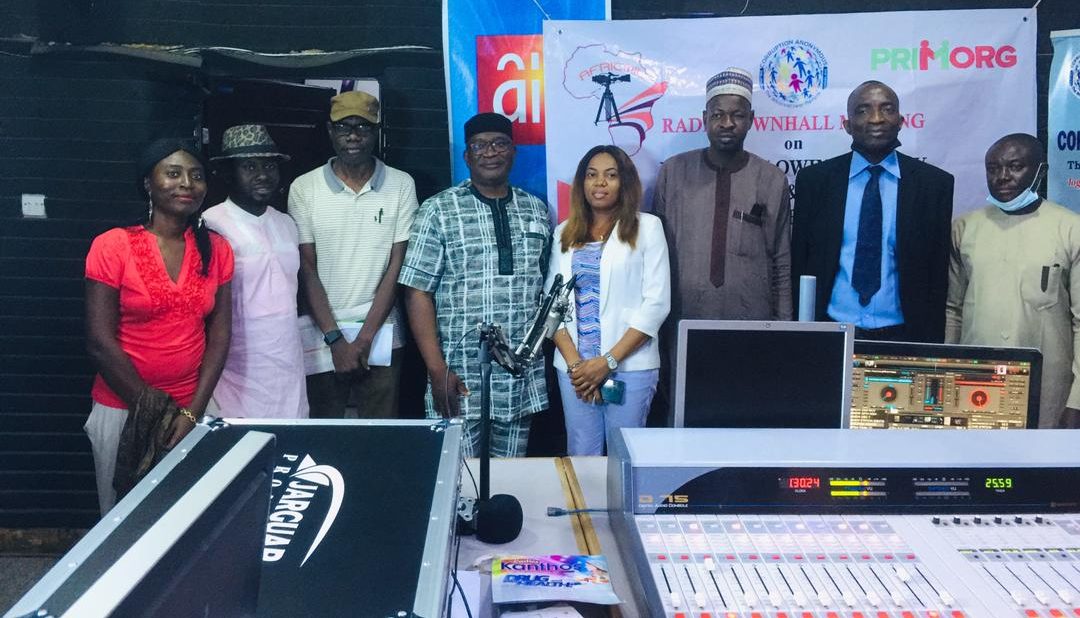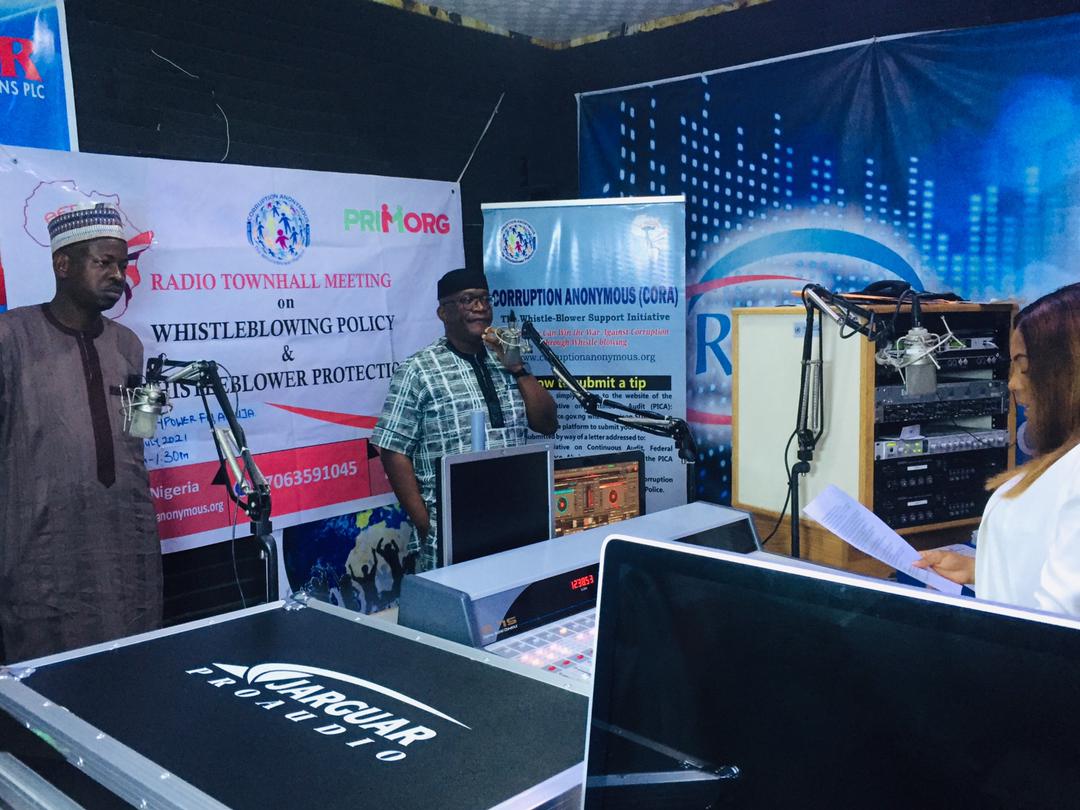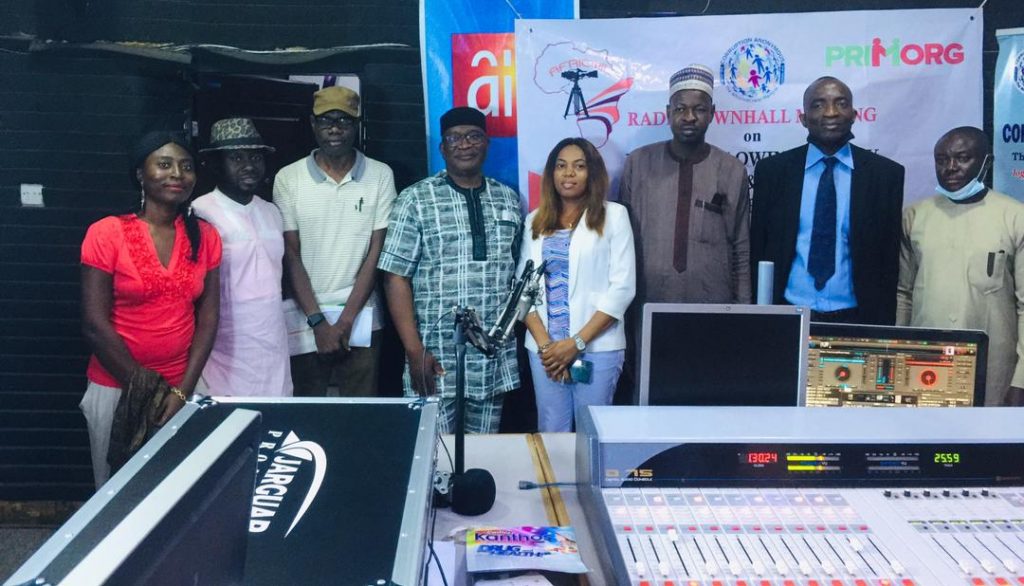An official of the Federal Ministry of Justice has revealed that despite the creation of anti-corruption and transparency units to aid whistleblowing in government ministries, departments, and agencies (MDAs), not all government agencies are using the opportunity.
The Executive Secretary, Administration of Criminal Justice Monitoring Committee in the Ministry, Suleiman Dawodu said he doubts the application and functionality of the anti-corruption units by the MDAs while calling on the National Assembly to speedily pass the Whistleblowing Bill before them.

Dawodu made this known at a Radio Town Hall Meeting organized by the African Centre for Media & Information Literacy (AFRICMIL) in collaboration with the Progressive Impact Organization for Community Development (PRIMORG), Friday in Abuja.
Speaking on the challenges of institutionalizing whistleblowing in the public sector, he stated that the Independent Corrupt Practices and Other Related Offences Commission (ICPC) had established anti-corruption units within the MDAs but to date, most of them are yet to inaugurate their whistleblowing units; adding that uncertainty and tussle for who will head the units was hampering the inauguration in many MDAs.
“From ICPC estimation, about 426 MDAs anti-corruption and transparency units have been established in the MDAs but how effective are they,” He queried.
There are over 800 MDAs under the Federal Government in Nigeria
Dawodu added that the reasons people are not willing to blow the whistle against corruption these days were due to lack of legal framework, political will, and bureaucratic bottlenecks.
He called on the National Assembly to speedily pass the whistleblowing bill already in their custody into law.
 “Only legislation can sustain whistleblowing in Nigeria. So, I urge the National Assembly at this point to pass the whistle-blowing bill that is currently before them, it’s gone through first reading and I think there is a corresponding Interest Disclosure Bill as well.
“Only legislation can sustain whistleblowing in Nigeria. So, I urge the National Assembly at this point to pass the whistle-blowing bill that is currently before them, it’s gone through first reading and I think there is a corresponding Interest Disclosure Bill as well.
“There are two versions of the bill which basically will decide whether you want to position it within an existing body like the Public Complaint Commission or you have a new body which is called the national office to manage that. I think that will go a long way in managing, protecting, and ensuring we have all this information coordinated and investigated through the referral process,” Dawodu advised.
On his part, an Assistant Director at Federal Inland Revenue Service (FIRS), Paul Vianana revealed that the whistleblowing unit of FIRS was functional and had received about 15 complaints since it was established in 2016.
Vianana emphasized that the best way to fight corruption is by preventing it which the leadership of FIRS has resolved to see through.
He, however, called on citizens not to relent in approaching FIRS to report tax leakages, tax evasion, or any other form of corruption as it concerns them with the assurance of protection of their identity and compensation.
Similarly, Executive Director, Integrity Organization, Soji Apampa lamented that citizens don’t want to expose corruption or use public feedback mechanisms to report corruption these days because of fear of retribution and apathy. Stressing that the nomenclature “whistleblower” puts anybody with the intention of blowing the whistle in danger and against society.
Apampa recommended a change of approach, innovations, and less apprehensive mechanisms in reporting corruption in the public and private sector, adding that Nigeria must adopt a holistic approach if it must build a society of integrity.
 The Deputy Editor at Daily Trust Newspapers, Abdulazeez Abdulazeez said that a very robust mechanism to strengthen whistleblowing will be a necessary tool to enable safe and secure reporting in public or private establishments, noting that one worrying development in Nigeria’s war against corruption is that citizens do not feel that public funds are theirs.
The Deputy Editor at Daily Trust Newspapers, Abdulazeez Abdulazeez said that a very robust mechanism to strengthen whistleblowing will be a necessary tool to enable safe and secure reporting in public or private establishments, noting that one worrying development in Nigeria’s war against corruption is that citizens do not feel that public funds are theirs.
Abdulazeez also concurred that bureaucratic bottlenecks were also affecting the functionality of whistleblowing in government MDAs while calling on Nigerians to change their orientation to know that government funds are absolutely theirs.
The Radio Town Hall meeting Series is a collaborative effort between AFRICMIL and PRIMORG, aimed at increasing citizen’s active participation and involvement, and encouraging the government to institutionalize the whistle-blowing policy.
The project is supported by the MacArthur Foundation.
About Author
You may also like
-
Anti-Corruption: Whistleblowing Law Long Overdue – Activists, Lawyers Counsel FG
-
N12bn Bribery Scandal: EFCC Urged To Prosecute Indicted Nigeria Customs Officials
-
NEIP: ICPC Harps On Collective Fight Against Corruption
-
ICPC Says Constituency Projects Tracking Declining Corruption, Urge Nigerians To Report Infractions
-
Birth Certificates: Corruption Unabated in Registration Centers — FG Alerted

